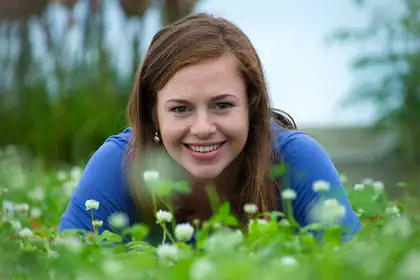
Jessica O'Connor.
We’ve all heard of animal breeders, but have you heard of a plant breeder? There’s a shortage around the world and, as our population heads to an estimated nine billion in 2050, they face one of the most pressing issues of our time – feeding the world.
According to New Zealand Trade and Enterprise, New Zealand-grown produce feeds over 40 million people, with over 95 per cent of agricultural production exported. While this number is evidence of our position as one of the world’s most efficient agricultural economies, the work is far from over and there is a Government-led goal to double the value of New Zealand food exports by 2025.
Pastoral, agricultural and biotechnology companies are working tirelessly to develop better methods and technologies for more efficient and resilient crops. One of the ways to do this is through plant breeding –the art and science of changing the traits of plants in order to improve growth and yield across environments – something humans have been doing for more than 10,000 years.
Primitive plant breeding was based on basic senses such as vision, smell and taste. Today, selection is based on an understanding of plant genetics. Massey’s Plant Breeding course is a prime example of how far the science has come.
Current Masters of Plant Breeding student Jessica O'Connor is able to study while working as a forage breeding technician at AgResearch.
“I was always curious about plants, I wanted to know why and how they grew in a certain way. As a plant breeder, you need to be curious and be able to use science to get you the answers. The great thing about my plant breeding work at AgResearch is that I’m not just a cog in someone else’s experiments. I can have an idea, suggest my own project and, if it’s good, the team assists you to make it happen.”
“If you want to bring a new product to the farmer, the consumer, the industry, you can do it, but you’ll struggle without the right tools. If you want to change the game, you have to learn about previous research – the processes involved, the different problems from the many perspectives and fields. The plant breeding qualification has given me that.”
Adjunct associate professor at Massey and senior scientist in the Forage Genetics team at AgResearch Dr Zulfi Jahufer leads the plant-breeding course.
He says that New Zealand has always been an innovator because of “the little land area we have to cultivate, we were forced to innovate”.
“However, there is a shortage of breeders both domestically and overseas, which means you will be in hot demand, but I think there’s a misconception that its only for molecular biologists or agricultural scientists. In reality you can come from both and excel in this degree and use what you’ve learnt to fill the gap in the industry.
“Breakthroughs made in forage crops, for example, can also be applied to other related industries, like flowers and apples. The opportunity for collaboration is there and we need more of it.”
“Plant breeders need to be innovative thinkers because the ground is literally changing underneath their feet as they work – the land changes, the climate changes, we face challenges of water scarcity, climate change brings new pests and diseases, increase in air pollution and, of course, the need for improving food quality, ” Dr Jahufer says. “In the plant breeding course at Massey students are not only taught the science, but the wider context in which it fits with the industry
Course coordinator Dr Jennifer Tate says plant breeding used to be based on physical observation – a long and costly process.
“In the past, plant breeders had to rely on their observations by sight to determine which plants might yield the best variety – either in terms of fruit colour, size, susceptibility to pests, growth rates, etc. Now, with marker-assisted breeding, we can identify natural diversity in traits of interest through DNA analysis. It is much faster and can sometimes cut out months or years worth of work to select a trait in a particular variety using molecular markers.”
In order to undertake the qualification at the University, students must have an undergraduate degree in either plant science or related fields like genetics, agronomy or general agriculture. It offers certificates, diplomas, masters and doctoral degrees. For more information, click here.